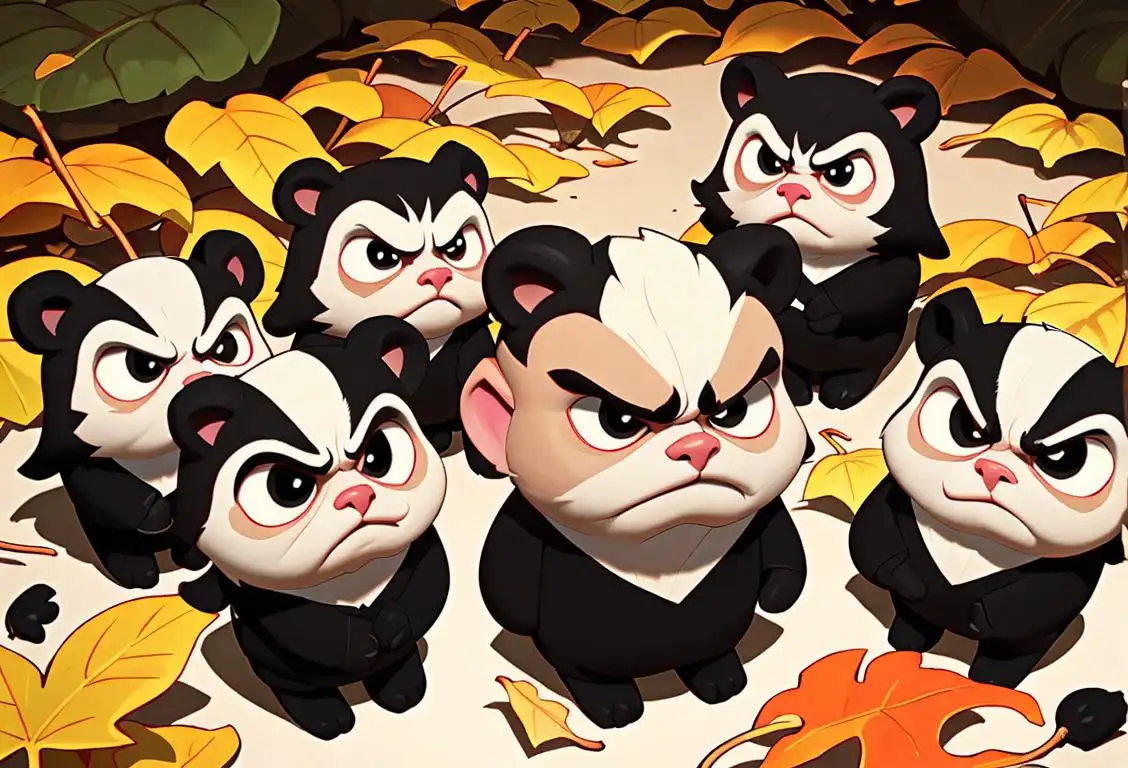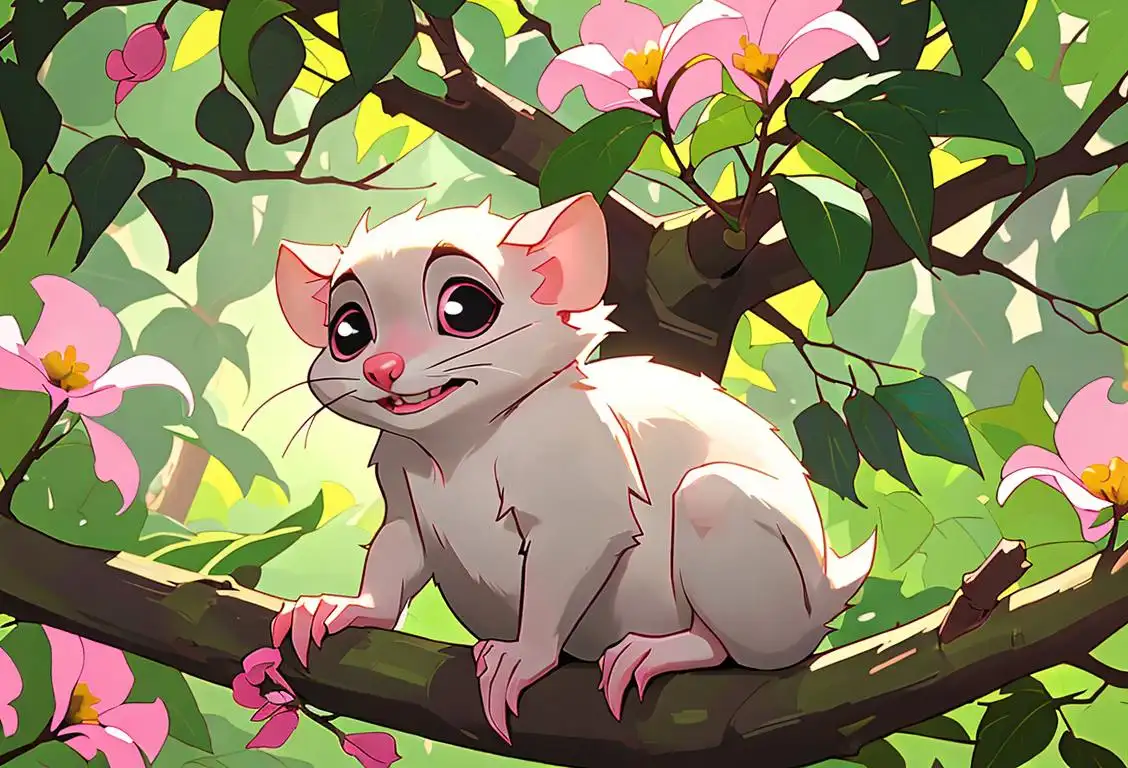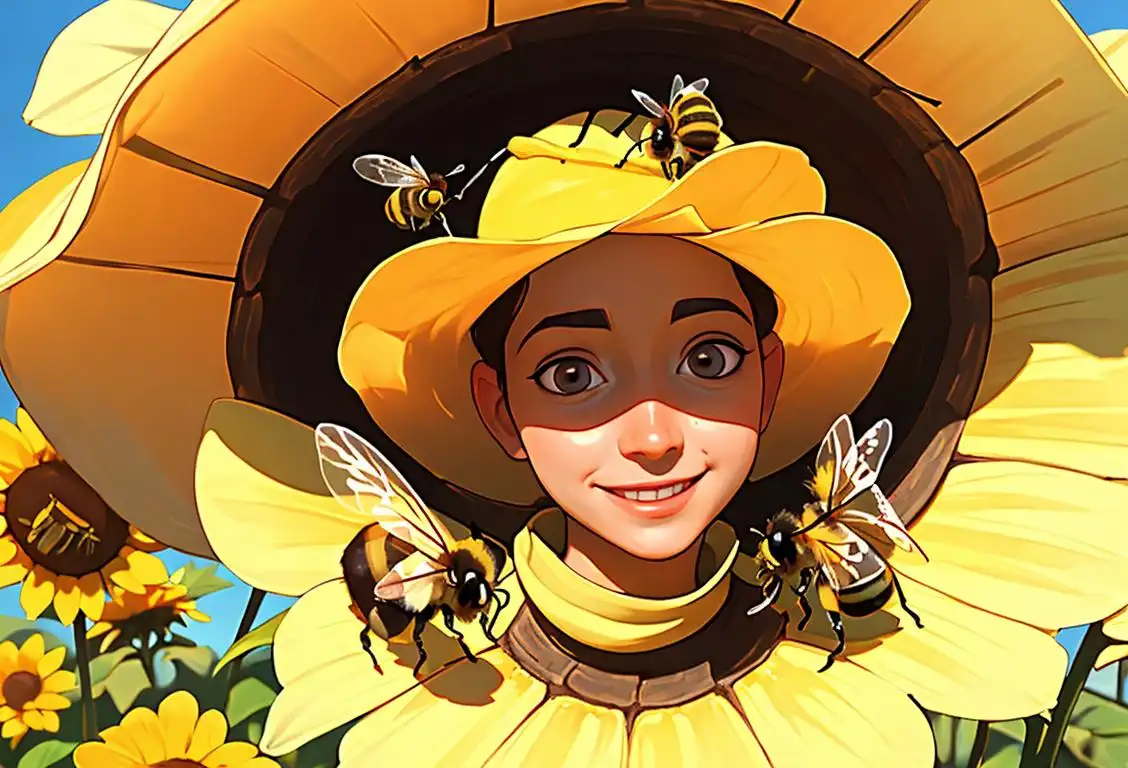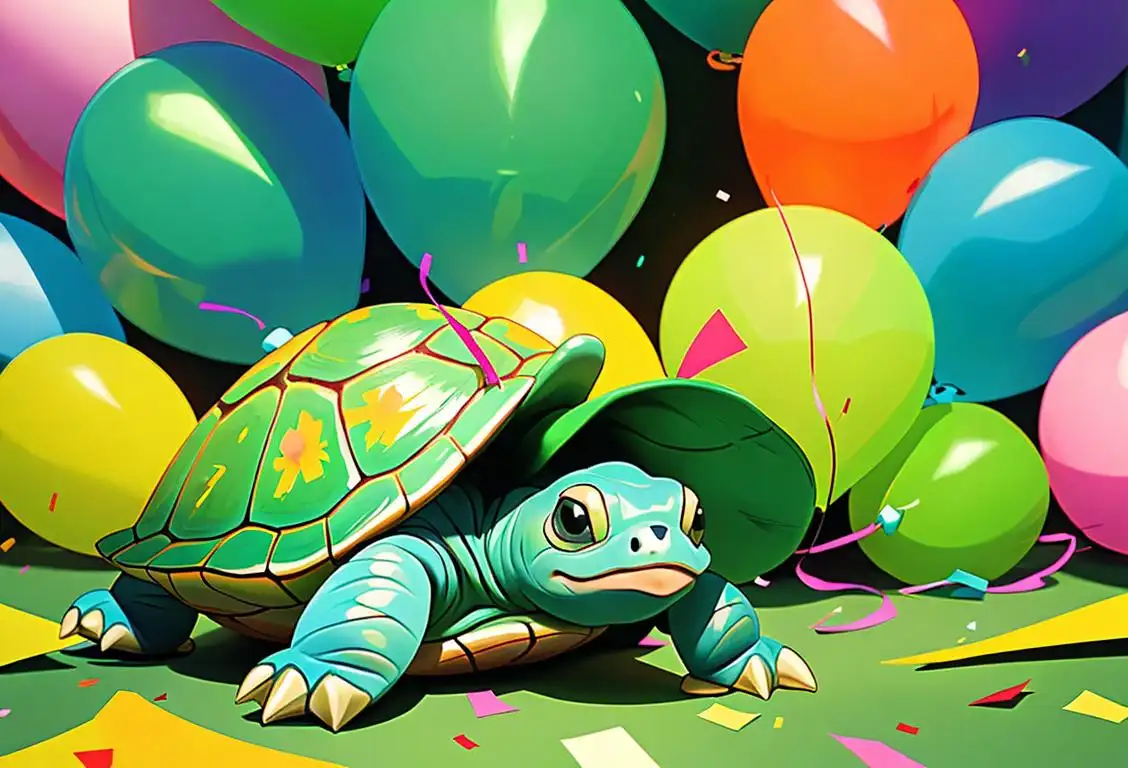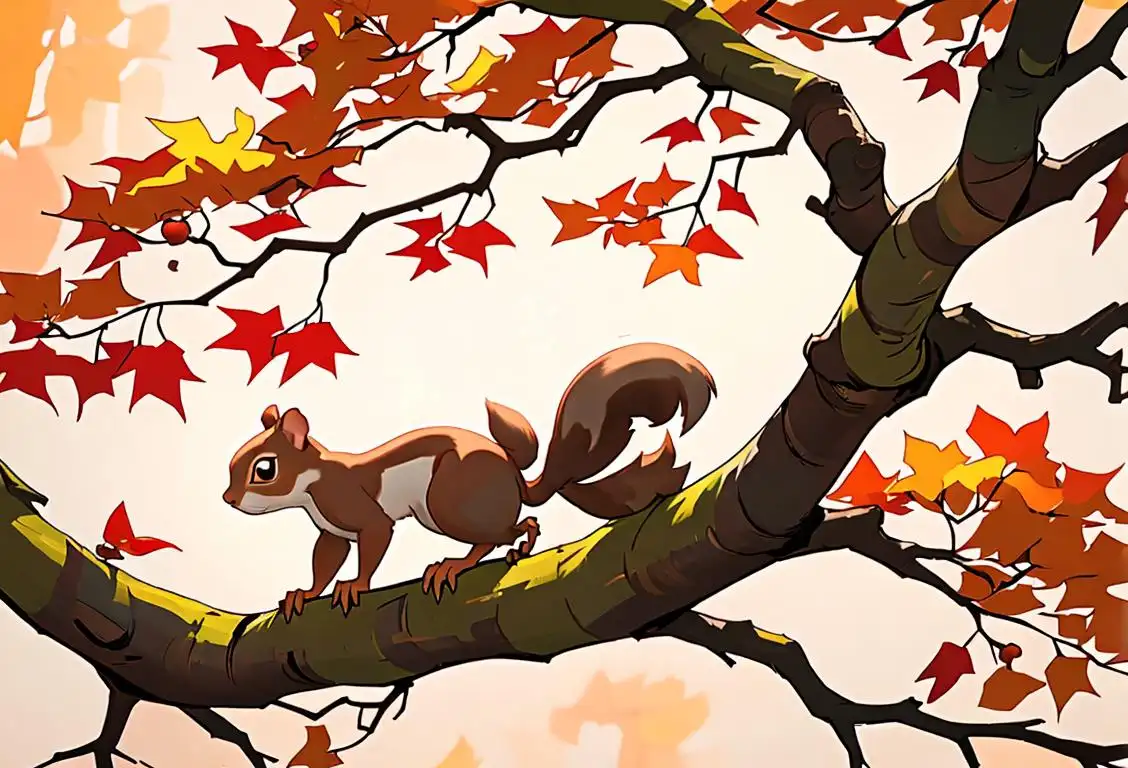National Slug Day
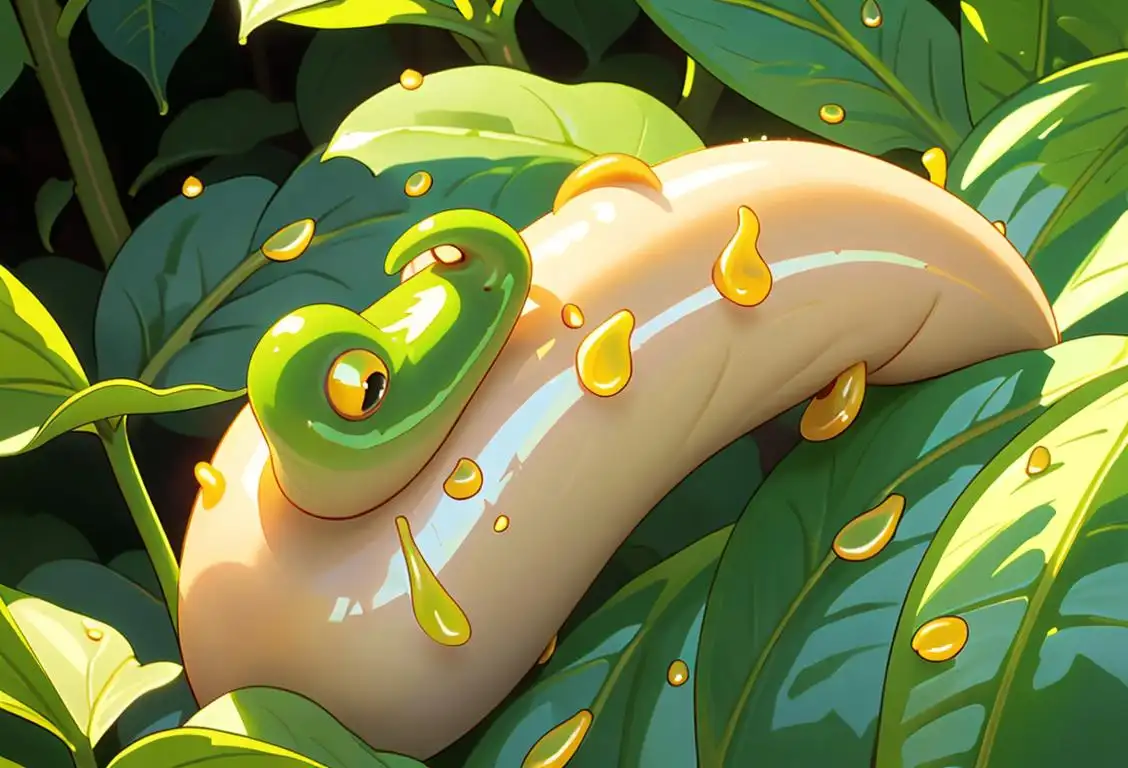
Howdy internet surfers, garden coveters, and all-round nature enthusiasts, welcome to a truly riveting, a slug... wild celebration of National Slug Day! A day where these shy, slime-tastic creatures take the spotlight. Let's dive into the details without getting too slimy, shall we?
When is Slug Day?
It's national slug day on the 19th March.
The Slimy History Of National Slug Day
Internet records are not exactly whizzing with information about National Slug Day. Our masterful digging, we've noted 4 mentions of this uncommon day online. The most mentions swirling around on March 19th, 2017. It's almost as if people took a break from tweeting their avo-toast to chat about our slinky friends! Who knew?
Now, for the uninitiated, you might be wondering why on earth we'd celebrate these gelatinous gastropods. Well, pull up a lily-pad and let's zoom in.
Slugs: The Unsung Heroes of Your Garden
Despite their reputation, slugs perform some of earth's dirty jobs. These little guys are nature's recyclers, munching on decomposing plants and fungi. So technically, they're helping your compost bin hit the mark!
Slug The Day Away
How does one celebrate National Slug Day? Slowly, of course! Take some time out to appreciate the quiet, gentle pace of these creatures. Not every race needs Usain Bolt, some need...well, slugs. Their zen, measured approach to life is worth emulating. Need a laugh? Try a slug race! Just remember, it's not about the speed, it's the (very slow) journey.
History behind the term 'Slug'
1700s
The Birth of 'Slug'
The term 'slug' first emerged in the 1700s as a slang term used by printers. It referred to a strip of type that was used to fill in blank spaces in a line of text. These strips were typically made of lead, and their purpose was to ensure that every line of text had the same width. As printing technology advanced, the use of slugs became less common, but the term persisted and took on new meanings.
1800s
Slugs as Fake Coins
In the 1800s, the term 'slug' took on a completely different meaning. It became associated with counterfeit or fake coins. Counterfeiters would often create fake coins by casting them using molds made from genuine coins. These fake coins were then circulated as legal tender, fooling unsuspecting individuals. The term 'slug' was used to describe these counterfeit coins, highlighting their lack of value and authenticity.
1920s
Slug as a Slang for a Fast Hit
During the 1920s, the term 'slug' gained popularity in the world of boxing. It was used to describe a powerful punch or a particularly forceful hit. Boxers who possessed formidable punching abilities were often referred to as 'sluggers.' This usage of 'slug' reflects the impact and strength associated with a forceful strike, drawing parallels between a swift punch and the movements of a slug.
1950s
Slugging as Hitchhiking
In the 1950s, the term 'slug' took on yet another meaning, this time in the context of transportation. In Washington D.C., commuters began to form informal transportation networks known as 'sluglines.' These lines consisted of individuals who would gather at designated spots and share rides with drivers heading in the same direction. The term 'slugs' was used to refer to these passengers, as they were essentially hitchhiking without the exchange of money. This unique usage of 'slug' as a verb to describe hitchhiking has persisted in Washington D.C. and continues to be used to this day.
Present
Slug as a Web Publishing Term
In the present day, the term 'slug' has taken on an entirely new meaning in the context of web publishing. In this context, a 'slug' refers to a part of a URL that identifies a particular page or post. Slugs are typically derived from the title of the page or post and are used to create a clean and readable URL structure. This usage of 'slug' highlights its evolution from a printing term to a digital term, symbolizing the constant evolution of language and technology.
Did you know?
Did you know that slugs have four noses? That's right, when their sense of smell is quadruple ours, no wonder they've perfect compost bin radar!Tagged
awareness fun gardening animals nature wildlife slow livingFirst identified
19th March 2017Most mentioned on
19th March 2017Total mentions
4Other days
Slug Day
Badger Day
Possum Day
Cougar Day
Park Every Day
Bee Lovers Day
Turtle Day
Squirrel Appreciation Day
Bat Appreciation Day
Penguin Day
